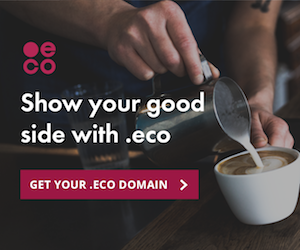Registering a .eco web address sends a powerful message to consumers about their environmental responsibility and transparency.
To activate a .eco domain, users must pledge to support positive change for the planet and list their commitments to environmental action on a public-facing .eco profile.
This is where it gets interesting, especially for the ecolabel community. The .eco profile system is designed as a simple on-ramp to sustainable action. It starts with the Sustainable Development Goals and a pledge of commitment to sustainability. Once activated, .eco is a resource carefully designed to share knowledge and good practice.
Over 60% of .eco members that have purchased .eco domains in the past two weeks since launch are small businesses. Over time, the goal is to help these groups understand how and what ecolabels are credible and useful to their work. Using the.eco system, .eco web address owners can indicate what certifications they currently have, or what ones they are interested in becoming certified for.
This includes companies that act as platforms. Sandra Capponi, co-founder of GoodOnYou.eco, an ethical fashion app that helps users find the ethical rating of clothing brands, remarked on the differentiation gained with a .eco domain, stating it “immediately demonstrates our commitment to environmental sustainability.”
It is also possible for ecolabels themselves to take advantage of the excellent availability – and credibility – that a new web ending like .eco offers. For example, Green Seal is already using www.greenseal.eco and has built an excellent .eco profile.
The .eco team is interested to partner and align with credible ecolabels who want to market their work to .eco members, and vice versa. Please feel free to contact us directly if you are interested to start a conversation, or check out www.get.eco now and search for available .eco addresses!


